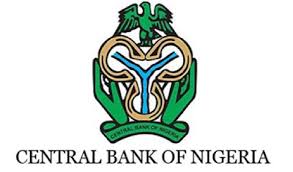In a landmark move that could redefine the future of Islamic finance in Nigeria, the Central Bank of Nigeria (CBN) has announced the official rollout of strategic liquidity management tools tailored exclusively for non-interest financial institutions. These include the deployment of the Nigerian Non-Interest Financial Institutions’ Master Repurchase Agreement (NNMRA) and the commencement of auctions for two groundbreaking non-interest financial instruments: the CBN Non-Interest Asset-Backed Securities (CNI-ABS) and the CBN Non-Interest Note (CNIN).
The announcement was made in a circular referenced FMD/DIR/PUB/CIR/001/028, addressed to all non-interest banks, conventional banks with non-interest banking windows, and authorized dealers. This marks a significant milestone in the CBN’s ongoing efforts to deepen Nigeria’s non-interest financial markets and provide viable Sharia-compliant alternatives to conventional liquidity tools.
A New Regulatory Backbone: The NNMRA
At the heart of this initiative is the NNMRA, a standardized master repurchase agreement developed specifically for the non-interest banking sector. This contractual framework is intended to regulate the conduct of repo (repurchase) transactions in compliance with Islamic finance principles. By establishing a consistent operational guide, the NNMRA aims to eliminate ambiguity in non-interest repo transactions and clearly define the responsibilities of counterparties, including the CBN itself.
According to the CBN, this agreement sets an internationally acceptable benchmark that aligns with global best practices while catering to Nigeria’s unique financial landscape.
Introducing the CNI-ABS: A Sharia-Compliant Liquidity Solution
Also launched is the CBN Non-Interest Asset-Backed Securities (CNI-ABS), a liquidity management instrument backed by tangible, Sharia-compliant underlying assets. Structured in accordance with Islamic finance rules, the CNI-ABS provides non-interest banks with a legitimate and faith-aligned tool to manage liquidity shortfalls.
The instrument is expected to improve the ability of non-interest banks to participate in the financial markets without compromising their adherence to Islamic principles, while also aligning with the CBN’s broader liquidity management objectives.
The CNIN: A Non-Interest Note for Modern Islamic Banking
In a further expansion of its non-interest instrument portfolio, the CBN introduced the CBN Non-Interest Note (CNIN) — a novel, interest-free financial instrument designed to complement existing tools while serving as an additional avenue for managing liquidity through periodic auctions.
Unlike traditional notes, the CNIN evidences a Sharia-compliant, interest-free loan agreement between the Bank and eligible participants, thereby reinforcing the CBN’s commitment to diversifying Islamic finance instruments and promoting broader market participation.
Compliance and Auction Restrictions
The CBN has directed all eligible financial institutions to immediately take steps to integrate these instruments into their operations and ensure full compliance with the “Revised Guidelines for the Operation of Non-Interest Financial Institutions’ Instruments (2022).” Institutions are also warned that access to the Bank’s discount window will be restricted on days when CNI-ABS and CNIN auctions are held, underscoring the need for strict adherence to the new framework.
Market-Wide Implications
This strategic intervention is expected to usher in a new phase of credibility, inclusiveness, and innovation within the Nigerian financial sector. By bridging the gap between liquidity needs and Sharia compliance, the CBN is sending a strong message to local and international investors that Nigeria is ready to lead in Islamic finance on the African continent.
In a country where Islamic banking has steadily grown in prominence but lacked liquidity tools equivalent to those in conventional banking, this move by the CBN is seen as a bold and long-overdue advancement. Analysts predict that the availability of structured non-interest financial instruments will increase confidence in the regulatory environment and attract new institutional players into the non-interest banking space.
The CBN reiterated its commitment to monitoring market developments closely and providing additional guidance as necessary to support the full implementation of these instruments.







